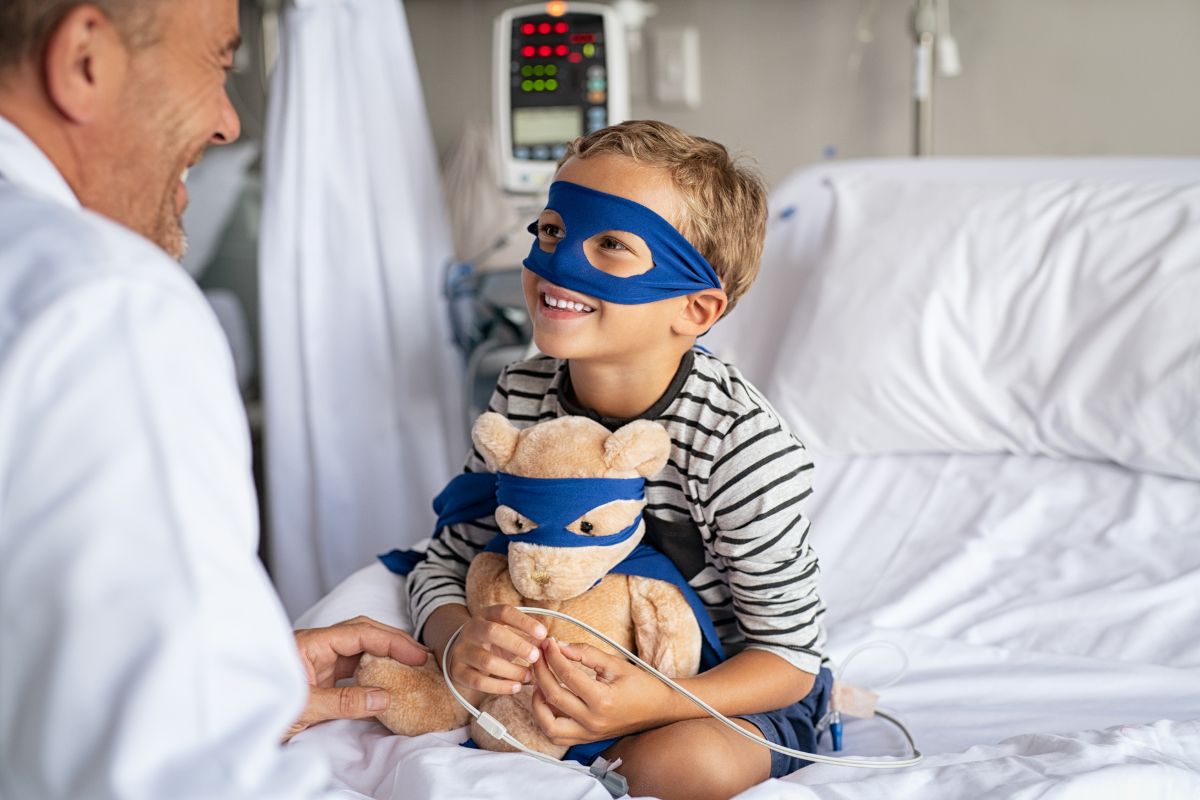I think everyone can agree that parenting is not for the faint of heart. Every day there are so many little choices to make, things to do, trying our best to help our kids become the amazing people God created them to be. But when you are a parent of a child with special medical or developmental needs, those choices can come with higher stakes and so many more unknowns.
Some of us find out that our child will need extra help before they are even born. Some find out in the delivery room. Some go for years before being blindsided with a diagnosis we weren’t expecting . . . Even with all the reassurances of God’s Word and even though we remember every promise He has kept in our lives prior to that moment, we can find ourselves downright terrified. Terrified for our child’s future. Terrified that we can’t be enough. Terrified of all the “what-ifs” and things that could go horribly wrong. Terrified that we will outlive our precious child. Devastated to see our child suffer and in pain.
Our Story
As someone who has walked the path of parenting a child with several medical needs, I will be the first to say I still don’t consider myself an expert by any stretch. My son’s story is his to tell, but to summarize, he was born with a club foot so severe that he shouldn’t have been able to walk unassisted. And I found out about it on the day he was born. He went through years of surgeries and continues in physical therapy a decade later. My son was also diagnosed with Type 1 Diabetes at the age of 10 . . . I share a bit of his story just to give you a little background of the lens I am looking through as I write this.
As the parents of children with special medical and developmental needs, the common denominator is that no matter what challenge our child faces, it was something that we were blindsided by at some point. Some parents are able to seemingly take things in stride. Some are emotional wrecks following a diagnosis. A lot of us are somewhere in between depending on the day.
Moving Forward
As a mom who has been on this path for a little while now, I want to share advice I wish someone had given me. Hopefully without aging myself too much, I’ll just say that I was a big fan of a certain late night TV host’s top-ten lists. So, here are my top ten things I wish I had heard when I started this journey of parenting a child with special medical needs.
1. Someone, at some point, will give you (in the weirdest of places) well-intentioned but ridiculous advice.
(I wish I was joking. Ever been in the self-checkout with a glucose monitor in your basket and hear the one about how cinnamon can cure your kid’s type 1 diabetes? Because I have. More than once.) Someone toxic may also blame you (and your sin) outright for your child’s issues. (Again . . . I wish I was kidding . . . ) But please, never forget that your child is fearfully and wonderfully made. And remind yourself of John 9:3
“Neither this man nor his parents sinned,” said Jesus, “but this happened so that the works of God might be displayed in him.”
2. You will blame yourself and question things you could have done differently.
(Particularly if your child was born with a medical or developmental issue.) You may also be tempted to blame genetics in basically everyone you and your spouse are related to all the way back to several years B.C. And while it’s okay to have those thoughts, don’t sit too long with them. While some medical issues can have a genetic component, playing the blame game doesn’t help anyone. (And that one route 44 Diet Dr. Pepper you had during your second trimester didn’t cause anything. Except for likely more trips to the bathroom than usual.)
3. You and your spouse will process things differently.
Sometimes very differently. And once you realize that you will save yourself a lot of frustration. Allow each other time to process and grieve. That grief is normal and okay, too. You had a picture in your mind of how you thought your child’s life would look and it has been suddenly and permanently changed. You should never feel guilty for grieving that loss.
4. Some friendships will change.
Partly due to those friends just feeling awkward and helpless to do something to help you. And partly due to your new normal taking up so much of your time and effort you just can’t be the same friend you were before.
5. You will have days when you are so frustrated and tired that you don’t even know what to pray.
But God understands the groanings of your heart. You don’t have to be eloquent. It will be okay. He is with you. No matter where you are.

6. You will feel like you have a handle on things, and something will trigger you and you will find yourself weeping in the middle of Kroger.
(Or the shower . . . Or *insert random usually boring place*.) It’s totally normal. And you didn’t go to Kroger to make lifelong friends anyway, so you don’t need to worry what that other person in self-checkout thinks. I promise.
7. You will witness some of the most incredible and generous and amazing acts of kindness from total strangers.
It will take your breath away. You will have moments of overwhelming gratitude for the little kindnesses you receive and just marvel at the beautiful hearts God gave some of the people you encounter.
8. You will get stronger and discover you are more capable than you think.
You were chosen in eternity past to be the parent of your child. That wasn’t an accident. And it wasn’t by mistake. You were both made for each other. The truth is that when a child receives a diagnosis, so does their entire family. So, it’s important to give grace to siblings as well as praise when they are helpful. (And you will find yourself blown away by the maturity and care from siblings. It is truly incredible!)
9. You will walk a challenging tightrope of wanting to help your child grow and become more independent, versus trying to protect them from all the things that could harm them.
Your worries are different than the worries of parents of children who don’t have medical or developmental challenges. This creates more challenges. Knowing when to jump in and help versus when to let them try on their own is harder than it looks.
Lean into the support and advice of others who have walked a similar road before you. Whether it’s a group online, in-person, or a support group through your doctor, it is so helpful to have folks who truly understand. Allow help from your church family and safe community groups. There are people who really truly want to help and support you and your child. Don’t be afraid to let them!
Therefore, as we have opportunity, let us do good to all people, especially to those who belong to the family of believers.
Galatians 6:10
10. When your day has been a really challenging one, before you collapse exhausted from another day, take a little time to watch them sleep.
No matter how old they get or how tired you are, seeing them in such perfect peace is good for your soul. (And they look so precious, too.) Stopping to go watch my kids sleep and pray over them has always been a healing and beautiful thing for my heart.
Just remember, when parenting a child with special developmental or medical needs, God loves that precious child even more than you do. And you need to remember to show grace. Grace toward your spouse, your child, your child’s siblings, well-intentioned strangers, your child’s care team, and most importantly: show that same grace to yourself.

